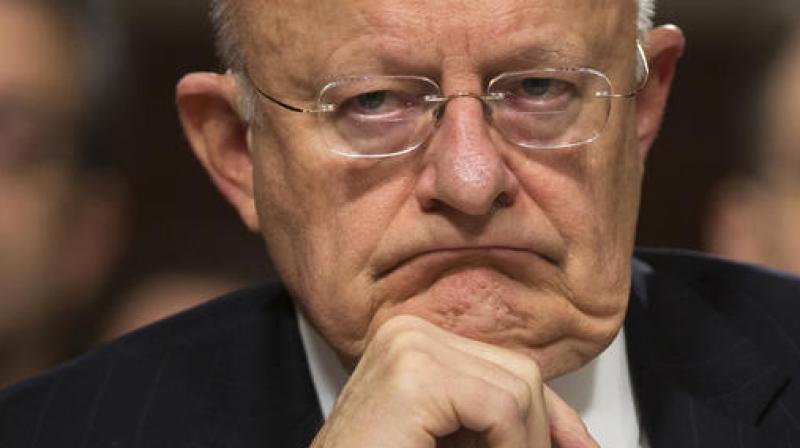US spy chief feels pretty good to resign' as Donald Trump takes office

Washington: Director of National Intelligence James Clapper announced his resignation on Thursday and said it "felt pretty good" to step down, ending a six-year tenure as the top
Clapper, 75, a retired three-star U.S. Air Force general, will stay on until Democratic President Barack Obama leaves office in January. He has said for months he intended to leave when Obama departed and his replacement will be chosen by Republican President-elect Donald Trump.
Clapper's term was marked by efforts to grapple with the re-emergence of an aggressive
His formal letter of resignation was issued in response to a White House request that all Obama administration political appointees submit resignations effective at noon on Jan. 20, a spokesperson for the Office of the Director of National Intelligence said.
Clapper appeared before the U.S. House of Representatives intelligence committee hearing on Thursday and Representative Adam Schiff, the committee's top-ranking Democrat, lightheartedly said he hoped Clapper would stay in the job for four more years.
"I submitted my letter of resignation last night, which felt pretty good," Clapper responded. "I've got 64 days left."
In March 2013 Clapper found himself at the centre of controversy after testifying before the Senate Select Committee on Intelligence, telling Senator Ron Wyden that the
His statement was disproved months later when former National Security Agency contractor Edward Snowden exposed classified details of
Clapper later said his response to the Senate was the "least untruthful" one he could provide.
On Thursday, Wyden said senior intelligence officials "engaged in a deception spree regarding mass surveillance" during Clapper's tenure.
Others praised Clapper with Senate Intelligence Chairman Richard Burr, a North Carolina Republican, saying he had "served our country honourably and with distinction in every capacity requested of him."
Before last week's presidential election Clapper's office issued a pre-election declaration accusing
Clapper said he did not expect “a significant change in Russian behaviour” when asked about
The leading candidates to replace Clapper in the Trump administration include Robert Cardillo, director of the National Geospatial-Intelligence Agency and a previous deputy director of national intelligence under Clapper, according to national security officials and people close to Trump's transition team.
Retired Lieutenant General Ronald Burgess, who headed the Defense Intelligence Agency during Obama's first term, and former Republican Representative Pete Hoekstra, who chaired the House Intelligence Committee, also may be in contention, sources said.
The director of national intelligence oversees 17
As deputy director of national intelligence, Cardillo had served as Obama's "alternate" principal briefer, an official said.
Clapper's service in military and intelligence spanned six decades, beginning in the 1960s in the U.S. Marine Corps followed by enlistment as a U.S. Air Force officer.

